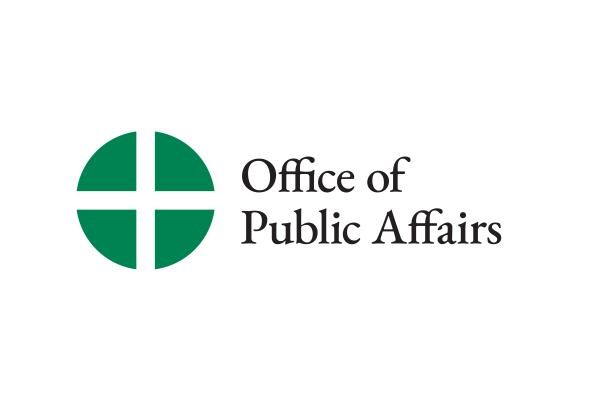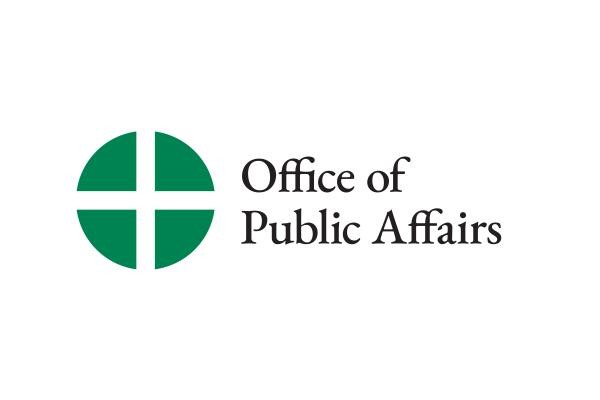Catholic-Muslim Dialogue Looks At U.S. Interreligious Education
WASHINGTON—A new round of the Mid-Atlantic Muslim Catholic Dialogue, April 23-24, in Washington, looked at interreligious education in the United States. The meeting, which was convened by the Islamic Circle of North America (ICNA) and Catholic representatives of the United States Conference of Cath
WASHINGTON—A new round of the Mid-Atlantic Muslim Catholic Dialogue, April 23-24, in Washington, looked at interreligious education in the United States.
The meeting, which was convened by the Islamic Circle of North America (ICNA) and Catholic representatives of the United States Conference of Catholic Bishops' (USCCB) Committee on Ecumenical and Interreligious Affairs, explored teaching about different religions in private and public institutions. Discussion was guided by the experiences of the Institute on Religion and Civic Values, represented by Shabbir Mansuri and Munir Shaikh.
The discussion follows upon a meeting in 2007 where Safaa Zarzour described the development of a Muslim-Catholic educational exchange by the Council of Islamic Societies of Greater Chicago and the Archdiocese of Chicago. Zarzour chaired a panel of Muslim representatives at the April 23-24 meeting.
Mansuri, Shaikh and Zarzour noted there already is consensus on the need to educate about world religions in public schools, thanks to the work of the First Amendment Center in Washington. Discussion at the April meeting focused on the many audiences for interreligious education: seminarians, university students, school teachers, public and religious school children.
Sandra Keating, Ph.D., of Providence College, related the discussion to theological and pedagogical principles. From a pedagogical perspective participants looked at effective ways to educate about other religions, and said the most effective approach should not only provide basic information but also draw attention to the spiritual values of a religion. They said maintaining a positive tone in curriculum content can help correct a bias against religion that exists in some educational and political environments.
Participants also agreed that to develop critical thinking skills students need to know the story of religions in a balanced way, neither emphasizing negative features nor promoting the religion in a devotional style more appropriate to a mosque or church setting. Participants also noted that sensitivity in how one communicates and works with other traditions should be part of any program and stressed particular attention to the training of religious leaders and school teachers for all school systems.
Father Gregory Fairbanks presented a curriculum for ecumenical and interreligious training required by Catholic seminaries and recommended for clergy and lay leaders. He cited documents of the Second Vatican Council and other more recent church documents. He highlighted U.S. pastoral concerns, including interreligious marriages, social justice cooperation or tensions, and educating non-Catholic children in parochial schools.
Imam Ahmed Nezar Kobeisy offered reflections on the training of imams for U.S. mosques. He highlighted efforts, such as psychological and marriage counseling, that would not be so urgently required of imams in majority-Muslim countries.
In other remarks, Bishop Dennis Madden, co-chair, recalled the recent visit of Pope Benedict XVI. He reminded participants of the pope's call to achieve what the pope called the "truth of peace" while maintaining "a clear exposition of our respective religious tenets."
The next meeting of this round will be in May, 2009, and focus on "Developing a Strategic Plan on Interreligious Education." In the coming months, a survey on interreligious education will be sent to Muslim and Catholic educators.
Catholic participants of the dialogue include Bishop Dennis J. Madden, co-chair; Christian Brother David Carroll, Wilhelmus (Pim) Valkenberg, Ph.D., Sidney Griffith, Ph.D., Sandra Keating, Ph.D., Paulist Father Thomas Ryan, Father Francis Tiso, and Father Gregory Fairbanks.
Muslim participants include Ameer Khurshid Khan, President of ICNA, who was unable to attend as co-chair; and Imam Dr. Ahmed Nezar Kobeisy, who substituted as Muslim co-chair. Other participants included Imam Hamad Ahmad Chebli, Shabbir Mansuri, Munir Shaikh, Safaa Zarzour, and Prof. Zahid Bukhari. Radouan Majidi attended as an observer.


